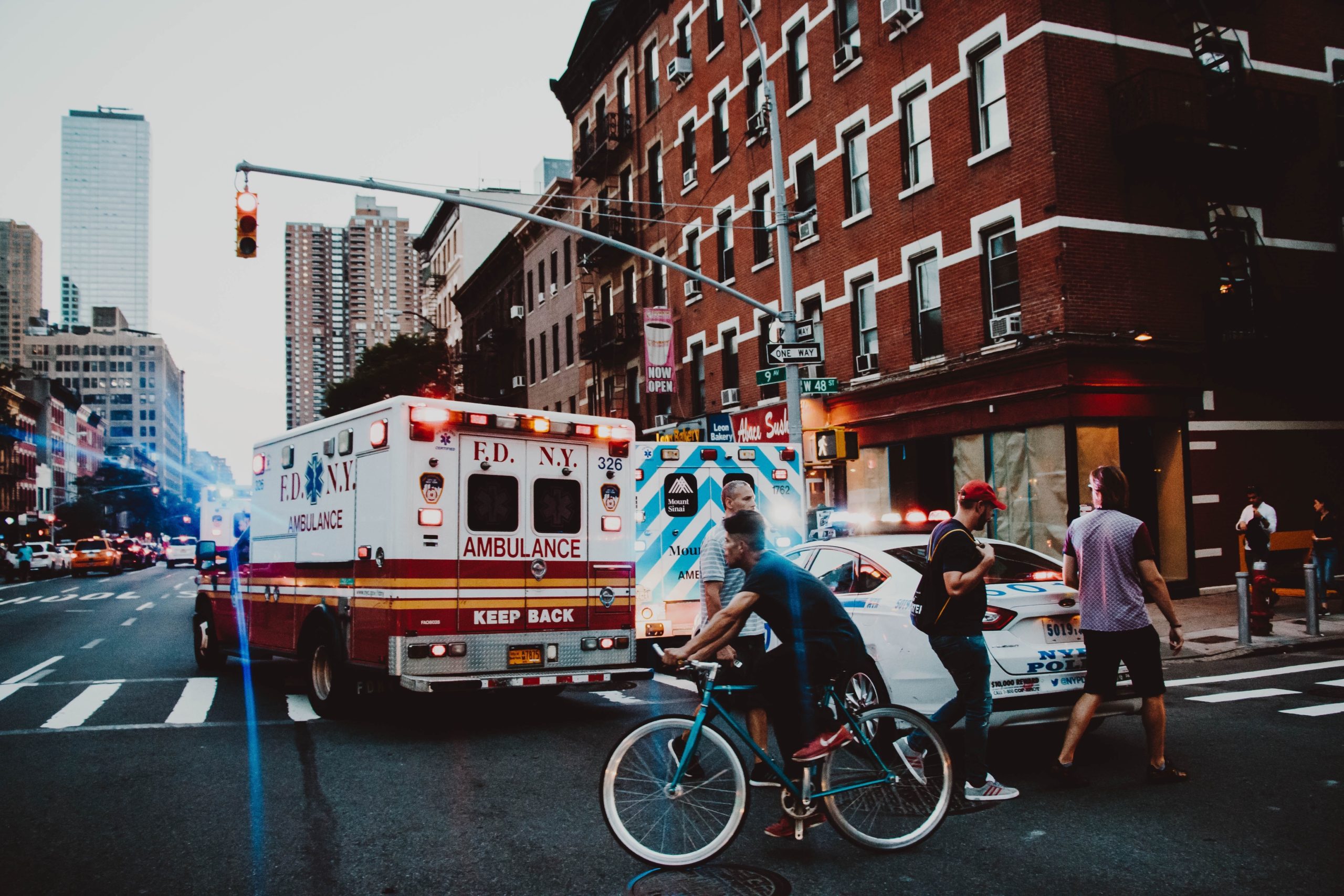What’s the worst thing you’ve ever seen?
Photo by Benjamin Voros on Unsplash
I’m not the best at small talk. A closet introvert, I’m not the first one to start a conversation. That doesn’t mean I don’t like meeting new people, getting to know them, or going to parties. In Steve Harper’s book The Ripple Effect, when people meet strangers they look for common links. Where are you from? What university did you study at? What do you do? Occasionally, I’ll share I was a city paramedic in a past life. Without fail, someone will ask, “What’s the worst thing you’ve ever seen?”
What’s the worst thing you’ve ever seen? It’s an awkward question. I assume they’re curious about the worst trauma (lawnmower blade encounter), the grossest ailment (gangrenous limb), or the weirdest (self-inflicted poisonous snake bite) 9-1-1 call. It’s a reminder people imagine paramedics rolling from one life-or-death event to another. Paramedic reality is housecalls and acting as a critical public health and social safety net provider in the community. The true life-or-death events make up less than five percent of their patient contacts.
What’s interesting is the perception that emergencies are difficult. In practice, the real emergencies were easy calls- the textbook events. You knew what was important, it was clear what needed to be done, and everything else was extra. In regular life, it might be like the race to meet a deadline. Why is it you can always accomplish something in an all-nighter that you can’t seem to accomplish in the weeks leading up? Again, clarity of the end goal, refining the vital few tasks and chipping away. Everything else is extra.
Right now school systems are scrambling to pivot to virtual learning to help students finish the school year, healthcare providers are reworking the system to make room for COVID-19 patients and serve other patients away from hospitals, and restaurants are shifting to family-style dinners and a take-out only service model. People are reacting to meet the demands of our changed situation in rapid and remarkable ways.
Organizations impressively react to urgent events (i.e., proposal deadline, a surge in demand). Leaders focus, staff rally together, what needs to get done just gets done, and magic happens. Afterward, those involved exhale, celebrate, and have a sense of accomplishment. Some might debrief to reflect and learn.
These events are often revealing and highlight how well an organizational system and its many linked processes are set up and aligned. As attention is diverted to the urgent, work built on best effort or individuals can fail or show stress. Customers experience service delays. The staff feels stressed. The urgent event makes organizational processes show their imperfections and highlight the interdependence. Rarely do debriefs capture this learning and prioritize it for improvement.
Two opportunities present in this scenario for leaders:
- Understanding your organization as a system of linked processes. Quality leaders know reliability and results are by design. All work is a process, and identifying and standardizing processes to reduce variation and waste helps staff do great work on normal days and on not-so-normal days, too. No process happens in isolation. The work we do is interdependent with other processes and staff. Appreciating the linkages improves operations. Finally, often what’s thought to be an unplanned urgent event is actually a poorly predicted or managed event- this proposal was expected this month, this report is due every year, this meeting event requires preparation. Identifying and planning can reduce the burden of episodic work.
- Debriefing and planning to improve. Not everything is predictable or known. New knowledge about a gap or imperfection in a process emerges. In realtime, you work through it, but calling out the defect and capturing the important details becomes important inputs to the debrief. No issue should be brushed past or explained away. Make it a priority to understand the defect and fix it for the future.
We all have two jobs: do the work and improve the work. This is true every day. Times like this pressure test the systems we have, and not everything will go as smoothly as it should. The better we are at proactive improvement, the lesser the impact. The true emergencies I remember from my ambulance days worked because we knew what to do and we did it. The more we can continually design and produce the work that we want, the easier it’ll be to react in times like this that are truly unique.
—
If this was helpful, share and include me @DaveWilliamsATX. Sign up here to receive a monthly email from me that includes all my blog posts and other Improvement Science resources I think you’d appreciate.
